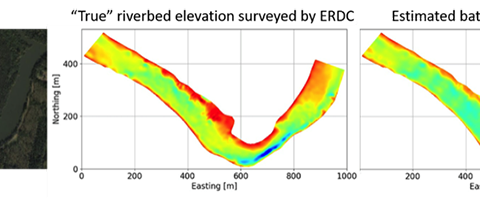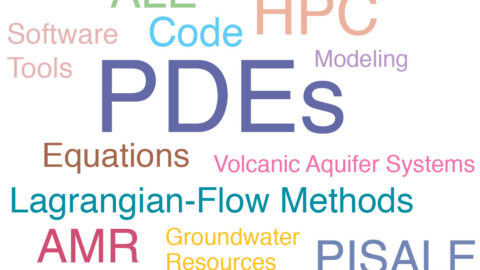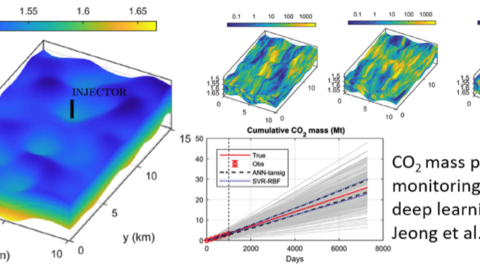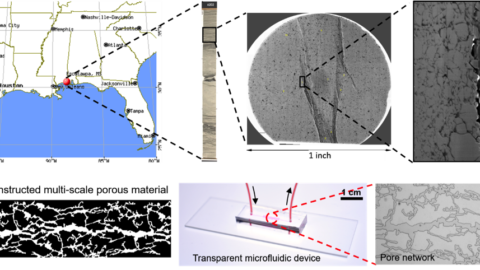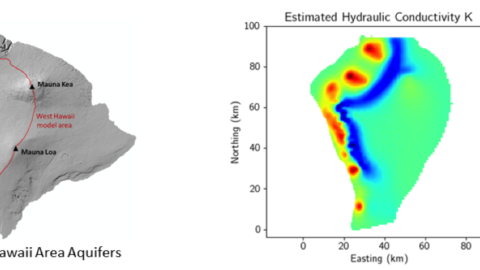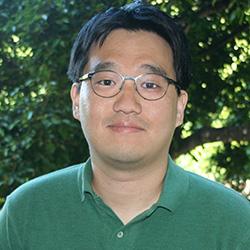
OFFICE: HOLMES HALL 336
E-MAIL: JONGHYUN.HARRY.LEE@HAWAII.EDU
RELATED WEB PAGE: VIEW
EDUCATION:
- PhD, Civil and Environmental Engineering, Stanford University, 2014
- MS, Civil and Environmental Engineering, Colorado State University, 2009
- BS, Civil, Urban and Geosystem Engineering, Seoul National University, 2007
FIELDS OF INTEREST:
- Groundwater flow and reactive transport modeling in high performance computing environment and model upscaling
- Numerical linear algebra
- Large-scale inverse modeling with uncertainty quantification
- Optimal control and stochastic optimization of water resources system
- Big environmental data analysis with machine learning
CURRENT RESEARCH:
- ALE-AMR Framework and the PISALE Codebase (NSF): https://pisale.bitbucket.io/index.html
- Role of Fluid and Temperature in Fracture Mechanics and Coupled THMC Processes for Enhanced Geothermal Systems (DOE-University of Utah): https://utahforge.com/
- Science-Informed Machine Learning for Accelerating Real Time Decisions - Carbon Storage (DOE): https://edx.netl.doe.gov/smart/
- River and coastal bathymetry estimation (US Army ERDC): https://www.erdc.usace.army.mil/Locations/CHL/
- Development of a Decision-Making Algorithm for Detection and Quantification of Leaks (NYSEARCH): https://www.nysearch.org/
- Spatiotemporal rainfall interpolation (USGS WRRIP)
Jonghyun "Harry" Lee is an Associate Professor of Civil and Environmental Engineering and Water Resources Research Center, teaching teaching groundwater modeling, data assimilation, optimization, and machine learning. He is also an Oak Ridge Institute for Science and Education Faculty Fellow and Google Cloud Research Innovator (2022–2023).
Professor Lee’s research interests focus on optimal management of water resources systems integrating numerical modeling, characterization, and optimization with big environmental data and machine learning. His main research projects are about (1) the development of numerical groundwater flow and reactive transport models for predicting freshwater-seawater interaction in Hawaiian aquifers, (2) the modeling and prediction of enhanced geothermal energy recovery in the Utah FORGE (Frontier Observatory For Research In Geothermal Energy) site, and (3) subsurface carbon storage site characterization and performance assessment. Professor Lee’s other ongoing and previous research projects have focused on groundwater contaminant remediation, reactive transport modeling of trace organic chemicals, geochemical heterogeneity characterization, aquifer recharge and recovery, real-time gas pipe leak detection, riverine and nearshore bathymetry identification, spatio-temporal rainfall interpolation, and multiphysics modeling of hydrogeophysics and hydromechanics.
Professor Lee earned his Ph.D. in Civil and Environmental Engineering from Stanford University, in Stanford, California. He earned an M.S .in Civil and Environmental Engineering from Colorado State University in Fort Collins, Colorado and a B.S. in Civil, Urban and Geosystem Engineering in Seoul, South Korea.
